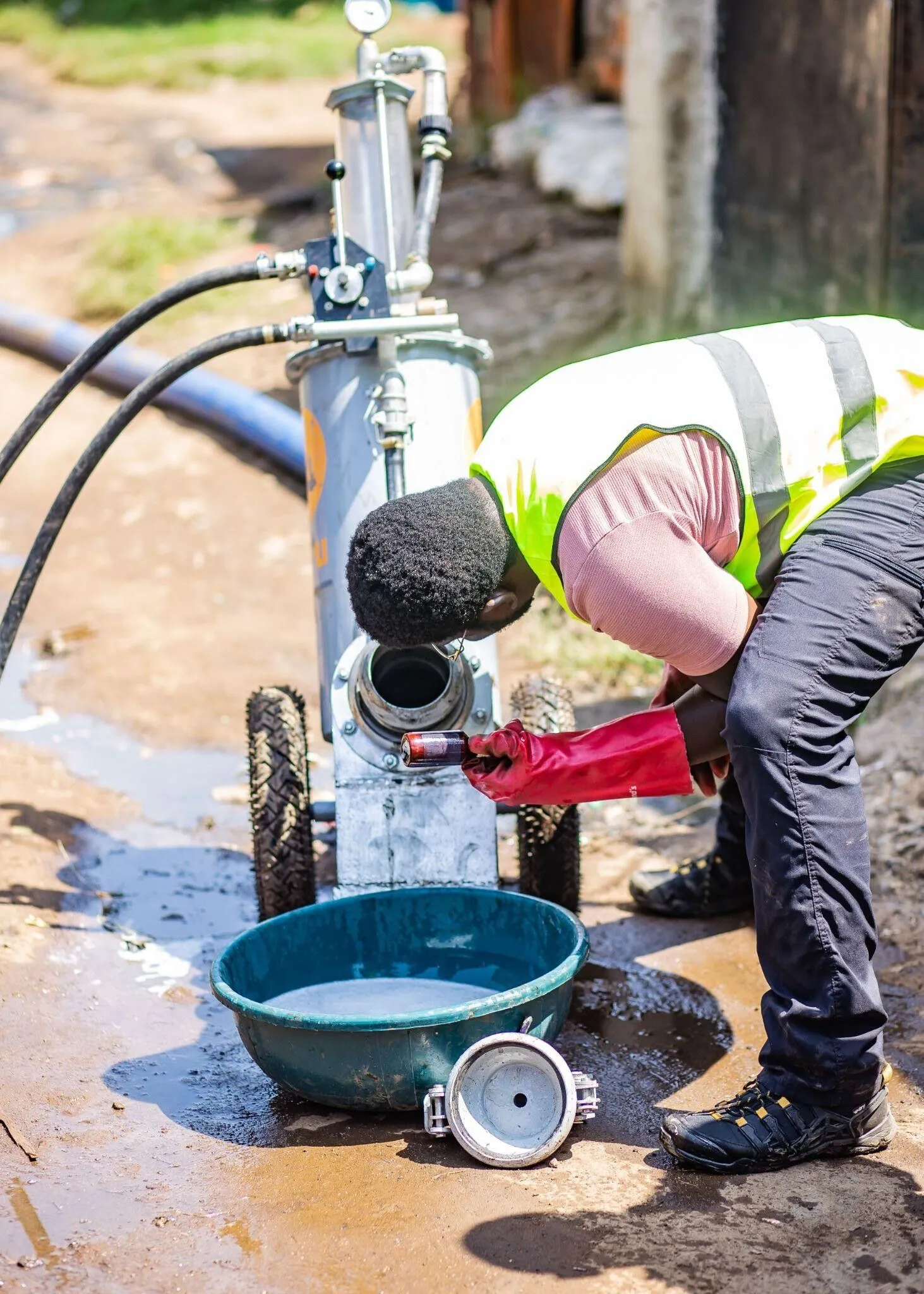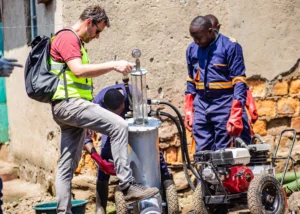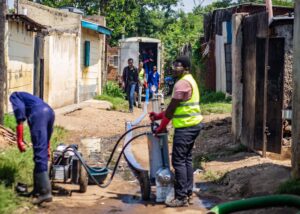Sanitation service providers face unique challenges when emptying pit latrines, particularly when non-biodegradable trash and thick sludge come into play. Unfortunately, due to a lack of proper waste disposal systems, pit latrines often become dumping grounds for plastics, diapers, sanitary pads and even household trash like fabric, utensils, glass, or, in other cases animal carcasses.
These items complicate emptying operations by clogging hoses and pumps. While the PuPu pump can manage moderate trash levels effectively, excessive debris in pit latrines poses significant challenges
The Impact of Excessive Trash
- Clogged Suction Systems
Non-biodegradable items can clog the pump’s suction mechanism, requiring frequent interruptions to clear the blockages. This slows down operations and reduces productivity.
- Increased Wear and Tear
Frequent interaction with abrasive or large trash may accelerate the wear on components, shortening the pump’s lifespan. Replacing or repairing damaged parts increases operational expenses and leads to downtime, delaying service delivery.
- Additional Labour Costs
Operators may need extra time to manually remove trash or unclog the pump during operations, increasing labour costs.
- Lost Revenue
Trash-related inefficiencies reduce the number of pits that can be emptied in a day, directly impacting the operators’ income.
What Can Be Done?
- Enforce Waste Disposal Laws
Regulations agreed upon by pit latrine emptiers, public health officers, the private sector, and the Ministry of Sanitation can help control what can be discarded in pit latrines.
- Promote Recycling and Repurposing
Separating waste at the household level for recycling or repurposing can significantly reduce trash in pits.
- Behaviour Change Campaign
Educating households on the consequences of dumping trash in latrines and providing alternative disposal options are essential steps toward sustainable sanitation practices.
- Continued action research on improving the capabilities of the pump
Lab testing and product iterations are important to assure trash can be pumped effectively. Currently new valves for the pump are being tested in the workshop of PRACTICA Netherlands.




